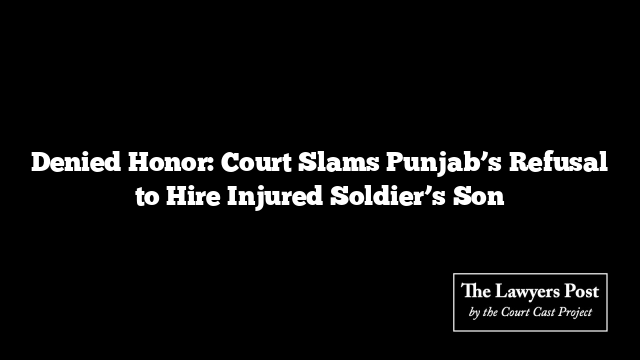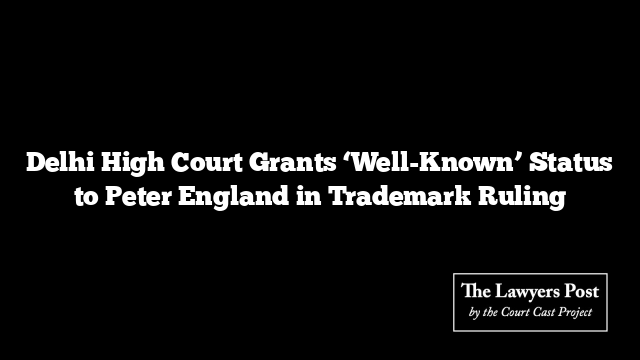In a scathing rebuke, the Punjab and Haryana High Court has condemned the denial of a government job to the son of a soldier who sustained injuries in an anti-terror operation in Jammu and Kashmir, calling the decision unjust and irrational. The court ruled that under Punjab’s 1999 policy for war heroes and battle casualties, the soldier’s son was entitled to the appointment he was denied.
The soldier, Surinder Pal, had served in the Indian Army since 1982 and was injured in an IED blast during an operation. Despite his disability being officially recognized as service-related, he continued to serve until 2008, when he was discharged under a low medical category. Seeking benefits under the 1999 policy, which provides employment opportunities to dependents of war heroes, he was rejected on the grounds that his discharge was not directly due to his injury but the completion of his service tenure.
The court found this reasoning unacceptable, stating that the soldier’s perseverance in service should have been viewed as a testament to his dedication rather than a disqualifying factor. “The continuation of the petitioner in service, despite having suffered disability, rather goes to his credit while the same has been construed otherwise, appalls this Court,” the judgment read.
The ruling emphasized that legal precedents reinforce the principle that rigid technicalities should not be used to deny rightful benefits. It also cited a previous case where a BSF constable, similarly retained despite his injuries, was granted benefits under the same policy.
Ordering Punjab’s government to rectify the injustice, the court directed officials to appoint the soldier’s son within three months, ensuring the policy’s original intent—to honor and support the families of war heroes—was upheld.





